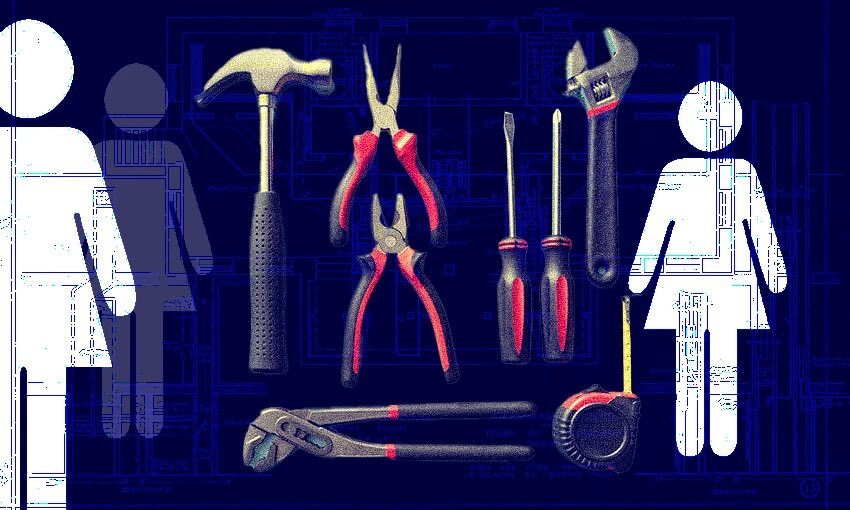Curriculum changes under the microscope
A 'fast draft' of the new science curriculum has prompted enormous debate among educators as the clock ticks down on finalising the new level 1 NCEA curriculum
Mōrena and welcome to The Bulletin for Thursday, July 6, by Anna Rawhiti-Connell. Presented in partnership with Z Energy.
In today’s edition: National backs plan for third medical school; number of first home buyers at lowest level since Labour took office; Auckland mayor dribbles football on Eden Park roof and he’s (maybe) never looked happier; but first, some science educators have been left wondering “where the science” is in a leaked draft of the new curriculum
Context cart before a basics horse?
My last interaction with a high school science curriculum was in 1996 as a sixth-form chemistry student. The only successful hypothesis I proved was that I was a distraction to others in class. At the time, and perhaps unfortunately for me and an entire generation, there was a common perception that you’d only study all the sciences — chemistry, physics and biology — at sixth and seventh form level if you were aiming to get into medical school. Back in the ancient times (the late 90s), the idea that science was an essential knowledge system through which to understand the world seemed as foreign as taking typing, a subject that was still stigmatised as being for young ladies who wanted to join the steno pool. Knowledge as context seemed to be the preserve of the humanities. As someone with no pedagogical background, the current debate about the leaked ‘fast draft’ of the science curriculum seems to be rooted in whether a holistic and contextual cart is being put before the basics horse.
‘Where is the science?’
As reported by RNZ’s John Gerrtisen above, the draft (and it’s worth noting it is indeed a draft) was sent to a few teachers for their feedback ahead of its release for consultation next month, but some were so worried by the content they leaked it to their peers. Some science educators have been left wondering “where the science” is in the new curriculum with no mention of physics, chemistry or biology. It was also leaked to Dr Michael Johnston, a senior fellow at the New Zealand Initiative and former associate dean at Victoria University of Wellington’s School of Education. In an opinion piece, Johnston writes that “calling this document a science curriculum is far too generous. It is a blueprint for accelerating the decline of science in New Zealand.” He echoes sentiments expressed by Dr Andrew Rogers, the head of the chemistry at St Peter’s College in Auckland in an opinion piece for the Herald published in June (paywalled) and another, published yesterday (paywalled)
Curriculum writer rubbishes suggestions key subjects would not be taught
The draft proposes that science be taught through five contexts - the earth system, biodiversity, food, energy and water, infectious diseases and “at the cutting edge”. One of the curriculum writers from the University of Waikato, Cathy Buntting, rubbished suggestions key areas like physics and chemistry would not be taught. Speaking to RNZ’s Morning Report yesterday, she said teachers “will be teaching the chemistry and the physics that you need to engage with - the big issues of our time - and in order to engage with the excitement of science and the possibilities that science offers." As a relevant aside, Newsroom’s Marc Daalder has a report this morning (paywalled) on new polling that shows New Zealanders don’t understand how to fight climate change.
Just ‘parts of’ new curriculum for the new NCEA Level finalised
The latest debate over the science curriculum comes amid questions about the timing of the rollout of a new NCEA Level 1 curriculum and a number of schools opting out of offering it. Education minister Jan Tinetti confirmed on Q&A over the weekend that just “parts of” the new NCEA Level 1 curriculum have been finalised but that there was still a commitment to rolling it out next year. NCEA is optional in Year 11 (the old fifth form for anyone that doesn’t have kids and did School C). A number of schools have opted out of offering it including Rangitoto College and St Cuthberts. Hobsonville Point Secondary School ditched NCEA Level 1 in its traditional form when it opened around 2015. It’s a fascinating school and if you’re interested, The Detail has a great episode profiling its approach to education. The school’s principal Maurie Abraham, also joined an assistant principal from Christ's College to discuss why schools were pulling out of offering NCEA Level 1 in June on RNZ’s Nine to Noon.
Beyond the boys’ club: Making the trades a more inclusive industry
Diversity and the trades haven’t always been phrases that fit together, and many would argue there’s still a long way to go to break down the ‘boys’ club’ attitude. For builder Genevieve Black, dealing with sexist comments was common when she first started her trade. Trade Careers is supporting women entering the trades by providing resources to address diversity issues. Read more of Black's story, and what Trade Careers is doing to help, on The Spinoff now (sponsored)
National backs plan for third medical school
The traditional “straight from nailing science at secondary school” route to med school referenced above, is one of things National’s promise to build a new medical school at the University of Waikato seeks to address. As the Herald’s Thomas Coughlan writes, National has said the new med school would be “graduate only”. This means it would admit “students who have already completed a degree and allowing them to undertake four years of medical study (rather than the five required for undergraduates)”. The government is questioning National's ability to fund a new medical school, and says it's unclear if doing so would increase the total number of doctors trained. The University of Auckland’s acting dean of medical and health sciences Warwick Bagg said setting up a third medical school was unnecessary and that growing current sites would be the most cost-effective and efficient way of increasing medical school places.
Number of first home buyers at lowest level since Labour took office
This morning, the Human Rights Commission has released its final report after a two-year inquiry into housing in New Zealand. The commission wants to see legal recognition of the right to a decent home within domestic law, as well as better accountability outside of the judiciary. The inquiry found housing affordability had significantly decreased over the last three decades, and there was a dramatic shortfall in accessible housing. As the Herald’s Thomas Coughlan reports this morning (paywalled) just 9,400 mortgages were written to first-home buyers in the year to May, less than two-thirds of the number written in the same period in 2021. “That figure would be a near-record low if not for the fact that in 2022 just 9,219 mortgages were written to first-home buyers… the current numbers are reminiscent of those delivered under the Key-English government, of which Labour’s pre-ministerial finance spokesman Grant Robertson used to describe the housing market as ‘completely broken’,” he writes.
Now is a great time to support independent journalism in New Zealand.
The generous support of our members powers all of The Spinoff's journalism, including our coverage of the upcoming election.
If you value what we do and believe in the importance of independent and freely accessible journalism here in Aotearoa – tautoko mai, donate today.
Click and Collect
Stuff’s Katie Kenny attempts to answer the question of whether gang membership is rising
New Zealand’s crown deficit has grown to $6.5b, more than $2b worse than forecast in Budget 2023
A special inquiry from parliament’s transport committee has recommended that officials begin feasibility studies to work out how to start four new passenger rail services
“What was most surprising is that maintaining existing pensions would cost the taxpayer nothing. The administrative cost… must have been significant” — the Retirement Commissioner on MSD’s pursuit of superannuation repayments when pensioners were caught offshore during the pandemic.
The teenager who's taken every bus, train and ferry in Auckland
Got some feedback about The Bulletin, or anything in the news? Get in touch with me at thebulletin@thespinoff.co.nz.
If you liked what you read today, share The Bulletin with friends, family, and colleagues.
With 100 days to go, Toby Manhire outlines the lay of the election land (the charts are plentiful and very good). Writing under a pen name, a current teacher reveals they had a relationship with a teacher when they were a student and that it’s more common than you’d think. Chris Schulz has the latest development on Queen Street’s increasingly derelict entertainment centre, Skyworld. Alex Casey reports on the Auckland plumbing company bamboozling drivers with a ‘cheeky’ design that merges lavatories and law enforcement. A bunch of people review the icy new Cirque du Soleil show. Tara Ward watches the new TVNZ series that shines a light on our most at-risk creatures.
Sporting snippets
Auckland mayor dribbles football on Eden Park roof to celebrate Fifa World Cup and Mad Chapman wonders if he’s ever looked happier. The postscript is worth noting.
Australian scientists say they have made the world's first diagnosis of chronic traumatic encephalopathy (CTE) in a professional female athlete
A member of Tonga's men's basketball team who has lived here since he was two, may be forced to miss this year's Pacific Games after being classified as an overstayer in New Zealand
Scientists Found Ripples in Space and Time. And You Have to Buy Groceries.
It’s a great headline and a lovely bit of writing from Adam Frank, a professor of astrophysics, about scientists detecting a “cosmic background” of ripples in the structure of space and time.
“It’s a reminder that the world always has been, and always will be, worthy of wonder.”
As Frank writes, if “the result bears up as more data are gathered, it’s a discovery that promises to open new windows on everything from the evolution of galaxies to the origin of the universe.”












Spellcheck, me maties - it’s John ‘Gerritsen’ who is education correspondent for Radio NZ